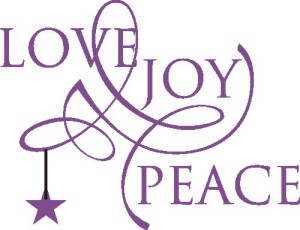Creating peaceful relationships has been our theme and focus for this past year. Having a spiritual theme or focus helps to light the path, making it clearer and a calm place to be. When I wander off course, as is the case at times, having a theme or focus has the power to gently bring me back on course, keeping me grounded and centred.
This theme has invited me to deeply consider those relationships or relationship dynamics that are no longer healthy for me and contribute to loss of self worth, loss of empowerment, loss of inner will for what I want my life to be about, and loss of vital life force power at the core.
 It has also been a year of discerning and anchoring in those relationship dynamics and patterns that promote health and well-being, those which increase self worth and self regard and indeed encourage potential and passion. The path has not always been completely visible to me or to my clients, but the theme and the habit of deep, meditative listening to my heart and to Spirit provided the way forward, and more specifically the way upward!
It has also been a year of discerning and anchoring in those relationship dynamics and patterns that promote health and well-being, those which increase self worth and self regard and indeed encourage potential and passion. The path has not always been completely visible to me or to my clients, but the theme and the habit of deep, meditative listening to my heart and to Spirit provided the way forward, and more specifically the way upward!
At last week’s Reiki practice night we took time to share stories of relationships lost or transitioned in 2014. We offered ourselves the gift of community Reiki meditation to heal and where needed, to release this grief and whatever other feelings entangled with the grief. We then moved into a Universal Peace and Light Meditation. What a beautiful way to enter into the Holiday season. By acknowledging and providing a contained and healing space to my grief and other deep emotions, they do not need to bleed into my sense of joy and blessing that may have occurred in the hidden shadows of my celebrations.
So now I have the opportunity to listen to Christmas … not the busyness or to-do lists, not the Christmas songs blasting from the radio or ads telling me what I need to be happy this Christmas, but to Christmas itself. And when I listened this year, quietly, serenely and with open heart, I heard about Love.
I heard of the Love that sustains all things in all life when we open our hearts to this GREAT LOVE. I even felt this LOVE as the foundation of my own soul. And in the moment of deep listening to Christmas, I had faith that “I am okay” in this LOVE.
I heard that LOVE gives. I heard that LOVE receives graciously, with gratitude. I heard that LOVE is EVER-PRESENT. And in that felt experience of LOVE in my heart, I knew that all that I heard in listening to Christmas was true, deeply and completely true. I just need to keep my heart and mind open to it.
As 2015 approaches, we are taking this theme of creating peaceful relationships and expanding it into Wisdom’s Way to Peaceful Relating. We will be exploring our on-going openness and relating to LOVE. I am excited to see where this theme leads us. Join me on this magical ride into and throughout 2015.
 And until then, I want to deeply thank you for your participation, your commitment, your love and faith in our work together of creating new kinds of relationships – to foster peace and compassion in our wounded world and relationships.
And until then, I want to deeply thank you for your participation, your commitment, your love and faith in our work together of creating new kinds of relationships – to foster peace and compassion in our wounded world and relationships.
May each of you, your family members (4-legged and winged ones included) and the Earth be blessed with moments of LOVE and your own rich Holiday message when you take a few moments to listen to Christmas with heart.
In peace, love and gratitude,
Shirley Lynn
Listening to Christmas
Have you ever heard snow?
Not the howling wind of a blizzard,
not the crackling of snow underfoot,
but the actual falling of snow?
We heard it one night in Wisconsin
quite unexpectedly
while walking up a hill
toward our cabin in the woods,
a soft whisper between footsteps.
We stopped, switched off our flashlights,
and just listened.
All around us in the darkness
we heard the gentle fall
of snow on snow.
No wind, no sound
but the snow.
Have you ever heard Christmas?
Not the traffic noises in the city,
not the bells and hymns and carols,
beautiful as they are,
not even the laughter of your children
as they open their presents–
but Christmas itself?
Have you been by yourself
and just sat and listened to the silence within,
patiently, without letting the mind
race to the next Christmas chore?
Perhaps if you have,
you felt the pulse of all humanity
beating in your own heart.
Perhaps you noticed
an outflowing of love
for all your brothers and sisters
on the earth,
a soft sense of Oneness
with all that lives.
In the silence of a snowy night,
listen intently, holding your breath,
and you may hear snow on snow.
Serene, alone,
undisturbed by thought,
listen to the silence in your heart,
and you may hear Christmas.
Copyright © 1994 by Alan Harris. All rights reserved





